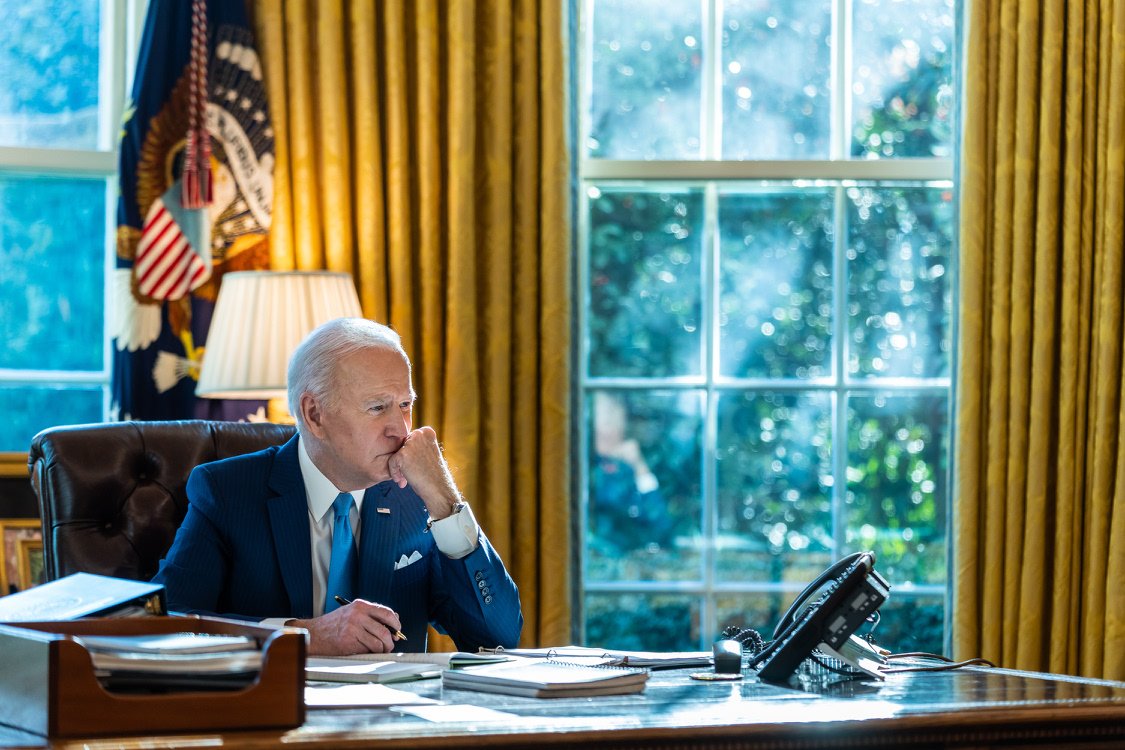Oil, this is how Biden moves between Putin, Maduro and beyond

The United States is considering a ban on imports of oil from Russia, even without Europe's cooperation. They have initiated contacts with Venezuela and Biden could travel to Saudi Arabia. All the details
According to Reuters sources, it appears that the United States intends to go it alone with a ban on oil imports from Russia. The move, yet another retaliation against Moscow for the invasion of Ukraine, should have a very heavy impact on the Russian economy, which is based precisely on the sale of hydrocarbons abroad.
DIALOGUE WITH EUROPE
On Monday, US President Joe Biden met in videoconference with leaders of France, Germany and the United Kingdom to involve key European allies in the ban on Russian crude. However, it seems – according to anonymous statements collected by Reuters – that the alignment will not take place, even if only a few days ago the scenario looked different .
The Old Continent could accept a freeze on purchases of petroleum products from Moscow, but hardly of crude oil.
A MATTER OF DEPENDENCY
What divides the United States and Europe are the shares of dependence on Russian oil: Washington accounts for 7 per cent of imports (the country is also the largest oil producer in the world); for the main European economies, collectively, about 40 per cent.
Germany, in particular, is the European country that buys the most, over 30 percent. Followed by France and Italy, both above 10 per cent. German Chancellor Olaf Scholz said he was opposed to the ban on the import of crude oil from Russia due to the impossibility of replacing it quickly, while acknowledging the need to accelerate the use of alternative energy sources.
THE PRICE OF OIL
The possibility that the United States bans Russian oil – and that, it would seem remote, that Europeans do the same – has pushed crude oil prices to their highest levels since 2008. The international and the American reference contract, namely Brent and WTI are respectively close to 140 and 130 dollars a barrel. The arrival at 200 dollars is not excluded.
The oil market was already nervous due to the imbalance between supply and demand caused by the pandemic, with OPEC + (the cartel of producers led by Saudi Arabia and Russia) which has been limiting supplies for some time.
THE CONSEQUENCES
Even if the United States imports crude oil from Russia in small quantities, the embargo would still affect them: the increase in the prices of barrels, a consequence of their reduced global availability, will affect the cost of gasoline. Which is already very expensive, at $ 4 a gallon, the highest value since 2008, aggravating the context of high inflation and threatening the recovery of the economy from the pandemic crisis.
BIDEN IN SAUDI ARABIA?
It is not certain that the United States will unilaterally ban imports of Russian crude oil, but the Biden administration has not ruled out the possibility either. Just as he did not deny a hypothetical visit by the president to Saudi Arabia to meet King Salman and obtain Riyadh's collaboration in stabilizing the oil market through an increase in supply: it is practically the only producer capable of significantly increasing output and relatively quickly.
However, it remains to be seen whether he is willing to do so. Judging from the past – Washington has repeatedly lobbied OPEC + for increased oil production – maybe not. Furthermore, political relations between the Americans and Saudis are not excellent and this could complicate any negotiations.
WHAT (NOT) VENEZUELA CAN DO
Yesterday, Venezuelan President Nicolás Maduro called the meeting with the American delegation over the weekend "respectful" and "cordial", saying he was willing to increase national oil production to compensate for a possible expulsion of Russian crude from the market and mitigate the surge of prices.
It is a possibility that is being discussed a lot, but difficult to realize. Meanwhile, Caracas is an ally of Moscow. Its oil industry, moreover, is under American sanctions (they were imposed with the aim of weakening the Maduro regime, accused of electoral fraud), and their relaxation is contested by some members of the American Congress. Critics include Republican Senator Marco Rubio, very influential on Venezuelan issues, but Democrat Robert Menendez is also against: he called Maduro "a cancer of our hemisphere", urging Washington to "not breathe new life into his reign of torture. and murders ".
Beyond the political difficulties, there are technical problems that will not allow Venezuela to make up for the shortage of Russian crude oil with its barrels: the Venezuelan oil fields are burdened by years of mismanagement and scarce investments; the reactivation of production will therefore be slow and insufficient. The same can be said for Iran.
WHY DID THE UNITED STATES CONTACT VENEZUELA?
It is obviously no coincidence that America has turned to Venezuela. There is a very specific reason: the American refineries on the Gulf coast are designed to process heavy oil: they import it from Canada (in large part) and Mexico, and to a lesser extent from Russia. Venezuelan crude is, in fact, of heavy quality.
REPLACING RUSSIA IS IMPOSSIBLE
No single country will be able to replace Russian oil volumes anytime soon. Russia exports around 7 million barrels of crude oil and petroleum products per day, or 7 percent of the global supply. Of these, 60 percent go to Europe.
This is a machine translation from Italian language of a post published on Start Magazine at the URL https://www.startmag.it/energia/stati-uniti-divieto-petrolio-russia-alternative/ on Tue, 08 Mar 2022 09:34:30 +0000.
